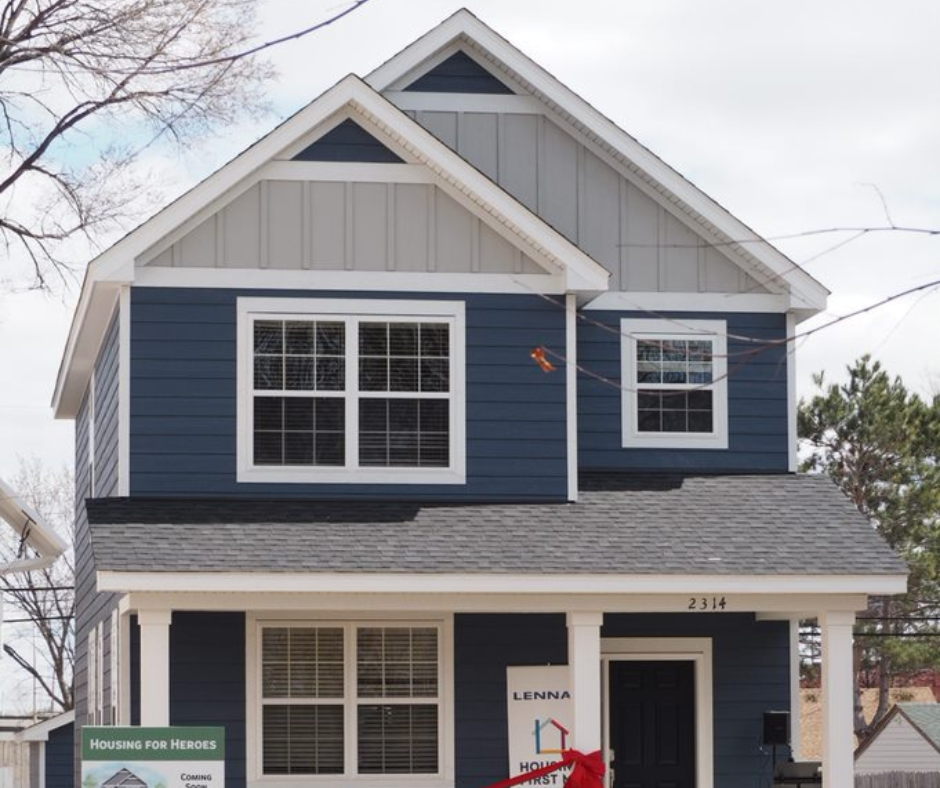‘Housing for Heroes’ partnership creates homes for Veterans


A partnership of housing leaders is working to put roofs over veterans’ heads one home at a time.
Housing First Minnesota Foundation, Minnesota Assistance Council for Veterans and Lennar are currently constructing homes for the Housing for Heroes project with a goal of having 15 completed by the end of next year. The initiative aims to house homeless veterans to offer them stability and connect them with support.
More than 150 veterans have been supported in the program’s six-plus years.
The partnership finds a parcel and builds a four- or five-bedroom home and often constructs an accessory dwelling unit in the yard. By next year, the program is expected to have at least 60 bedrooms across the Twin Cities in places like north Minneapolis, Maplewood and the Dayton’s Bluff neighborhood of St. Paul. Some are set up for homeless women veterans, some act as transitional housing and others act as a more permanent affordable home for a family.
Jon Lovald, chief operating officer at MACV, said the program gives clients the opportunity to live in a dignified space.
“Just because you’re coming out of homelessness or instability doesn’t mean you shouldn’t necessarily be in a house that’s commensurate with what you can afford to pay if there’s a program out there, like ours, that can make nice housing affordable for you,” Lovald said.
Some of the homes plus ADU are valued at about $400,000, Lovald said, but didn’t cost that much to build thanks to donated time and materials.
One of the homes in Maplewood, built in 2018 and geared toward homeless women veterans, came together with 51 partners and had an 81% construction cost savings, according to the Housing First Minnesota Foundation website. The construction was valued at $478,658.
The program has some flexibility because it doesn’t use public funds. Housing configurations have changed with time, like making one of the properties near transit into a transitional home and another in a neighborhood into a family-oriented home.
The team can also be flexible on things like rent. People can move in for free, get career help, then pay affordable rents to stay in the home. MACV has found that demand is currently stronger for “permanent solution” types of homes rather than transitional housing.
The ADUs also fill a specific need — many of those veterans who need housing are single, and some need a private place to stay that’s still close to community. Jessica Ryan, executive director of the Housing First Minnesota Foundation, noted that roughly 280 veterans are experiencing homelessness in Minnesota.
The partners each play a role. Housing First Minnesota Foundation helps with fundraising and building connections, MACV does fundraising and offers services and Lennar builds the homes.
“This work is super powerful,” Ryan said. “The fact that we’re changing lives and can make an impact towards homelessness is amazing.”
As the partnership moves ahead, Lovald said the hardest part is finding land. MACV is interested in supporting cluster developments, putting multiple homes on one larger lot. “The biggest hurdle we have in doing that is not the Lennar’s ability to build it, it’s not our ability to fund it. It’s the ability to find the property to do it,” he said.